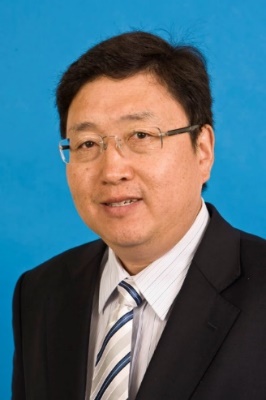主讲人:
乔世璋教授
时间:6月14日下午15:00
地点:丽湖校区守信楼(原B1栋)一楼报告厅

报告人简介:
Dr. Qiao is a Chair Professor at the School of Chemical Engineering and the founding Director of the Center for Materials in Energy and Catalysis (CMEC) at the University of Adelaide, Australia. His research expertise lies in functional materials for electrocatalysis, photocatalysis, batteries, and other new energy technologies. He has co-authored 510 papers in refereed journals, with 111,120 citation times, resulting in an h-index of 170.
In recognition of his research achievements, Dr. Qiao has received several prestigious awards, including the South Australian Scientist of the Year (2021), ARC Industry Laureate Fellow (2023) and Australian Laureate Fellow (2017), among others.
He is an elected Fellow of Australian Academy of Science (FAA), a Fellow of the International Institute of Chemical Engineers (FIChemE), the Royal Chemical Society (FRSC), and the Royal Australian Chemical Institute (FRACI CChem). Dr. Qiao is the Editor in Chief of EES Catalysis (RSC). He is also recognized as a Clarivate Analytics Highly Cited Researcher (120 current ESI Top 1% highly cited papers) in three categories (Chemistry, Materials Science, Environment and Ecology).
讲座摘要:
The electrocatalytic refinery (e-refinery) is a sustainable and environmentally benign strategy to convert renewable feedstocks and clean energy to transportable fuels and value-added chemicals. Specifically, powered by renewable electricity (e.g., solar, wind and hydro power), oxygen evolution reaction (OER) and hydrogen evolution reaction (HER) can efficiently split water into green hydrogen. A crucial step in realizing this prospect is the knowledge-guided design of appropriate reactions and optimal electrocatalysts with high activity and selectivity. In this presentation, I will talk about our recent progress in mechanism understanding and material innovation for water splitting. A special emphasis is placed on two concepts: correlated single-atom catalysis and local environment, effect on catalytic performance.
To meet the ever-growing demands beyond the prevailing lithium-ion batteries, the metal-sulfur and aqueous batteries are very promising candidates for both high-energy-density and large-scale applications owing to their high theoretical capacities, low cost, and high versatility. However, the practical application of these batteries is significantly hindered by the unsatisfactory capacity, cycling stability and rating performance. This is caused by the sluggish kinetics of the conversion reactions at the electrodes/electrolyte interface and the side reactions of the intermediates (such as polysulfide/iodide). Through combining in-situ spectroscopic characterizations and multiscale theoretical computations, we study electrocatalysis and electrochemistry in electrodes and electrolytes to achieve high performance and fundamental new insights of the metal-sulfur batteries and aqueous batteries.
欢迎有兴趣的师生参加!
